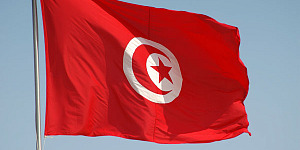Fitch Ratings has revised the Outlook on Tunisia's Long-term foreign and local currency Issuer Default Ratings (IDR) to Negative from Stable and affirmed the IDRs at 'BB-' and 'BB', respectively. The issue ratings on Tunisia's senior unsecured foreign currency bonds have also been affirmed at 'BB-'. Fitch has affirmed the Short-term foreign currency IDR at 'B' and the Country Ceiling at 'BB'.
KEY RATING DRIVERS
The revision of the Outlook to Negative from Stable reflects the following key rating drivers:
MEDIUM
The collapse of tourism in the context of heightened security risks contributed to a slowdown in GDP growth to just 0.8% in 2015, its lowest level since the 2011 revolution, from 2.3% in 2014. The agency has also revised down its growth forecasts to 1.2% for 2016 from 2% in the previous review, and to 2% for 2017 from over 3% previously. Unemployment, already high at over 15% of the labour force relative to a peer median of 9%, is unlikely to come down significantly, raising the risk of further social instability.
Geopolitical and domestic political risks have increased. The terrorist attacks of March, June, and November 2015 illustrate the deterioration in the security environment, despite government and international coalition efforts to crack down on terrorism. The growing footprint of Islamic State in Libya risks further spill-overs into Tunisia, adding to threats from local terrorists.
In January, a new wave of protests, triggered by unemployment in the interior poverty-stricken regions, has once again raised the risk of social instability and may complicate the government's implementation of structural reforms.
The trajectory for public finances has weakened. Fitch estimates the budget deficit at 5.3% of GDP in 2015, with wage increases, bank recapitalisation costs and a drop in corporate revenues offsetting savings from low energy subsidy costs. The 2016 Budget falls short of improving the budget composition, with the wage bill consuming almost 60% of revenues. Capital spending declined to 5.3% of GDP in 2015 from a long-term average of 7.5%. Public debt neared 53% of GDP in 2015, compared with a peer median of around 43%, and is projected by Fitch to reach 58.4% by 2017. Around 65% of government debt is denominated in foreign currency.






















































